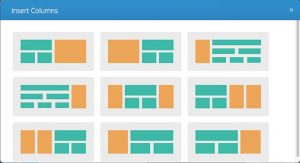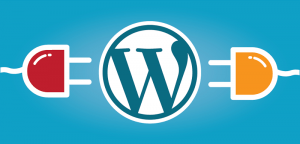Understanding the world of WordPress themes and WordPress plugins
Posted on Mar 08 2017 by in Blog
You can be a blogger for years and yet go on without knowing the difference between a WordPress plugin and a theme. Well, we have met quite a few bloggers and WordPress users in real life, who have no clue about the differences between WordPress themes and plugins.
Let is read this account from a designer who learnt the existence of the two separate identities in the hard way –
“When my website gave up on me” – this is an account by Neil Winston, who started only a couple of years ago as a website designer. When he built his first website, he almost“built it by fluke”. He had no idea what the plugins were and how they could be used to complement his WordPress theme. Therefore, when he started off with a fashion designer’s website, he chose a theme that was around $40.99. He had found the perfect theme for a bargain price, or so he thought. It had drag-and-drop editors, built in revolution sliders and gallery options. It was perfect for a website designer.
He spent over 4 weeks fine-tuning each feature and then handed the site over to his clients. The clients were happy and left satisfied.
The problem arose when they returned after 4 months. They were rebranding their label and wantedto change in the old theme. Therefore, when Neil tried out new themes he found that the sliders had disappeared and the drag-and-drop editor morphed itself into a bunch of shortcodes. Even the gallery was all hotchpotch. He was in a fix! He had a deadline to meet and there was no way he could tell his clients that he knew nothing about WordPress. So he turned to BigDropInc.com.
What actually happened to Neil’s website?
Neil was not a hardcore developer so it took him some time to understand that themes and plugins are completely separate entities. His website theme was quite awesome at first, since it included quite a few functionalities including drag-and-drop editors and listing charts. The moment he shifted to a new theme that didn’t have the supporting codes, these features were not integrated and were merely represented as shortcodes.
What’s a theme?
If WordPress websites are like houses, then your theme is like the exterior. It controls the visual parts like color, layouts, and design. In a WordPress site, the theme controls the “display logic”. The theme takes care of information organization and representation in front of your visitors. It takes care of your pages, posts and sidebars.
If you are currently operating a blog page, your theme will control all aspects like the header, footer and post display. It will also control the images and the snippets of posts displayed on the sidebars. Even the author detail displayed on each post comes with these themes.
What’s a WordPress plugin?
Now, going back to the house metaphor – if themes are the exterior, the plugins are the interior upgrades. For example – modular kitchen, mahogany polished antique furniture and marble bath fittings are an upgrade to your home interiors. Similarly, the plugins upgrade the interior functions of your website.
Plugins can modify core codes of WordPress themes in quite a few ways. You can add, remove and change codes to modify website functionalities.
Why are some of us still confused?
Sometimes the line between plugins and themes is not as defined as we would want them to be. There are themes that help with SEO and then there are plugins that help with visual properties. There are quite a few themes that we see today, which lets users to add listings and pricing tables to their own websites.
We are not saying that it is unethical to use such themes and plugins that blur the line between the two entities. All we are saying is, if you use a theme that takes care of functionalities other than visual appearance, you may face the same problem as Neil. His website started acting crazy because his first theme of choice had added functionalities. The moment he made his shift to a newer theme, these features fell apart since the new theme did not have these built-in functionalities.
Therefore, using plugins that act on visual traits are all right. Since you can carry over your plugins to a new theme.Nevertheless, if you use a website theme that also modifies functionality, you may be calling for trouble. You should ideally look for a theme that concentrates on optimizing the visual aspects of your websites and leaves the functionalities to your plugins.
Do codes in themes perform better than plugins?
Well, we do not blame you if you believe this to be true from time to time. We keep hearing how plugins can cause performance issues and we end up thinking that maybe codes are better off with themes. The action of plugins should be as minimized as possible.
However, this belief is quite baseless. A plugin code is executed quite similar to a theme code. The only difference is the timing. They are executed at the same rate and none of them has any advantage over the other. So one thing can be said for sure, that themes are not better than plugins when it comes to executing codes.
Why are plugins better than themes?
You may think, this is like comparing apples to oranges. Or like comparing 0’s to 1’s. However, we say, it is quite possible in the binary world. So if you ask, “are plugins better than themes when it comes to functionality?” we will answer it with a “Yes”.
Here are the reasons why –
1. Your plugins will help you to convert your codes into chunks. This is necessary when you are working on a large project. Debugging and maintenance becomes a lot easier when you break your code down to small chunks. In fact, since you can maintain each plugin individually you can always track down the ones that are malfunctioning.
2. If your functionality is plugin based, you can simply remove or monitor it by modifying the plugin. If your plugin relation features are breaking down, you will not have to delve deep into the core code. You can simply open the plugins directory and deactivate and remove the concerned plugins. Plugins create a compartmentalization of labor that is necessary for efficient management of website.
3. Changing themes are challenging if your website functionality resides in the theme code. Most of your functionality should reside with the plugins. When you shift from one theme to another, you will be able to easily migrate all functionalities to your new themes. If you have all shortcodes inside your plugins, you can just upload a new theme and activate the plugins.
4. Have you ever seen a designer add customizations to functions.php and style.css? This is possible because they can add new improvements without having to migrate each and every change manually. It is ideally possible to update and enhance your plugins separately. You can add them to new themes, remove them from old ones and even update them without touching the theme. Storing your website shortcodes inside plugins can also mean, updating them from time to time without creating a butterfly effect on the theme core code.
5. You can run a 100 plugins on your website without any impact and we are not making this up! Plugins do not slow your website down. They do not perform queries on your website database and they do not load resources. Many active and super successful websites currently run over a 100 plugins all the time. Maintaining so many plugins is also possible since they can be accessed through the plugin directory. You can directly see their performance, database usage and functionalities from one platform.
So if you are still confused about plugins and themes, and would rather have a theme with all the shortcodes, think again! A plugin can only be evil when they are built incorrectly. If you are choosing a WordPress plugin from a reliable website/directory or WordPress plugins library, be sure to read the reviews thoroughly before adding it and activating it.
If you are looking for a theme for your website, we would suggest you stick to one that has minimum functionalities. Lots of shortcodes within the theme core code won’t do you any good when you have to change themes. There are plugins to take care of all functionalities including listings and inventories. So why burden your theme code with unnecessary frills? After all, you can add as many plugins as you want and your website will still run as smoothly (if not more) as it did before.
Author Bio: Evans Walsh is an author, blogger and designer. He started off as a freelance website designer is the late 90s. He has seen the rise and fall of many website design trends, including the minimalist design of the 90s and the glam trend of the 2000s. He has collaborated on several design optimization projects with BigDropInc.com over the last couple of years.



